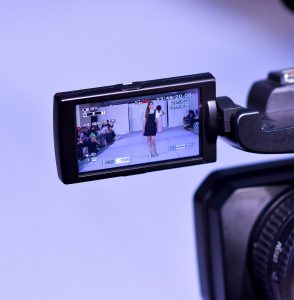The Promise and Appeal of AI-Generated Content
AI writing tools like Google’s Ads Creative Studio promise immense speed and scale for content creation. AI can generate large volumes of text and ads very quickly compared to human writers. This allows for more content to be produced in less time, appealing to publishers and marketers looking to scale content operations. The automated nature of AI writing means high volumes of content can be created 24/7 without human effort or oversight. For content teams looking to increase output, AI promises a huge boost in production capacity and speed. With the ability to produce content at scale, AI writing presents new opportunities for content distribution and audience reach. The speed and volume is highly appealing, even as questions remain about quality.
Questions Around Quality and Creativity
One key concern around AI-generated content is whether it can truly replicate human creativity and originality. While AI tools can churn out large volumes of copy quickly, the quality is often lacking. As one writer notes, “Machine-generated ads may hit the right keywords, but lack the flair that connects with audiences. Content risks being generic, soulless or even plagiarised” ([source](https://contentoo.com/blog/ai-content-creation-is-shaping-creative-writing/)).
AI content tends to imitate human writing styles, rather than imagining wholly new approaches. As such, it often lacks nuance, wit, and surprises that engage readers. The technology focuses on optimizing for keywords rather than crafting unique narratives and perspectives. As another article cautions, there are “risks remain around imitation over imagination” when relying too heavily on AI content generation ([source](https://aicontentfy.com/en/blog/rise-of-ai-content-creation-what-it-means-for-writers)).
Human creativity remains unmatched in resonating emotionally and sparking new ideas. While AI can aid efficiency in content production, the technology is not yet able to drive truly original thinking. Maintaining quality requires human oversight and input. Finding the right balance is key.
Risks of Plagiarism and Ethics
There are real concerns around the ethics of using AI to generate content at scale. While AI-generated text may not be plagiarism in the traditional sense, it does raise questions around authenticity and imitation over true imagination. The bottom line is that plagiarism in all forms is unethical as it amounts to a type of stealing.
There are risks that AI could encourage plagiarism by making it easy to imitate existing content at scale. The tech may hit surface-level keywords, but lacks nuance and soul. So while AI can handle repetitive tasks, over-reliance on imitation risks creativity and imagination. More debate is needed on AI’s role in augmenting, not replacing, human creativity.
Opportunities to Augment Creativity
While AI-generated content has risks, well-designed AI tools also present opportunities to enhance human creativity. As the Harvard Business Review notes, generative AI can handle repetitive and routine tasks, freeing people to focus their efforts on higher-value creative work [1].
For example, AI can help generate multiple initial ideas or versions of content, advertisements, or other creative assets. Humans can then select the most promising options and refine them using their innate creative abilities. This combination allows people to produce more and higher-quality creative work in less time compared to working alone.
As Vinay Verma writes, AI expands the creative horizons that are available to explore [2]. The technology makes it faster and easier for people to experiment with new styles, mediums, and approaches when developing creative content. AI systems can also suggest novel directions that humans may not have considered. This stimulation of ideas and perspectives boosts creativity.
When used ethically and transparently, AI-powered tools have the potential to significantly enhance human creativity. The technology can take care of repetitive tasks and broaden creative possibilities, allowing people to focus their skills and talents where they have the greatest impact.
[1] https://hbr.org/2023/07/how-generative-ai-can-augment-human-creativity
[2] https://www.linkedin.com/pulse/how-ai-can-augment-human-creativity-vinay-verma
The Debate Around AI’s Creative Limits
AI-generated content is a hot topic of debate. While AI tools promise immense speed and scale, concerns remain around the quality and ethics of machine-created content. Can AI truly replicate human creativity and ingenuity? Or does it run the risk of producing generic, soulless content – or even plagiarizing existing work?
Some argue AI will unlock new creative potential by handling rote tasks, freeing humans to focus on high-value creative work. But others warn that over-reliance on AI risks valuing imitation over imagination.
More nuanced discussion is needed on AI’s appropriate use. Rather than replacing human creativity, the technology may be best leveraged to augment it. With transparency and ethical design, AI could empower people to produce higher quality work faster. But if used as a shortcut, it risks devaluing creative skills and judgment.
Striking the right balance is key. While AI has limitations in matching human artistry, its capabilities will continue advancing rapidly. This makes an ongoing dialogue around its creative promise – and pitfalls – so important. The debate continues around whether AI can truly fuel human ingenuity, or might end up constraining it.




